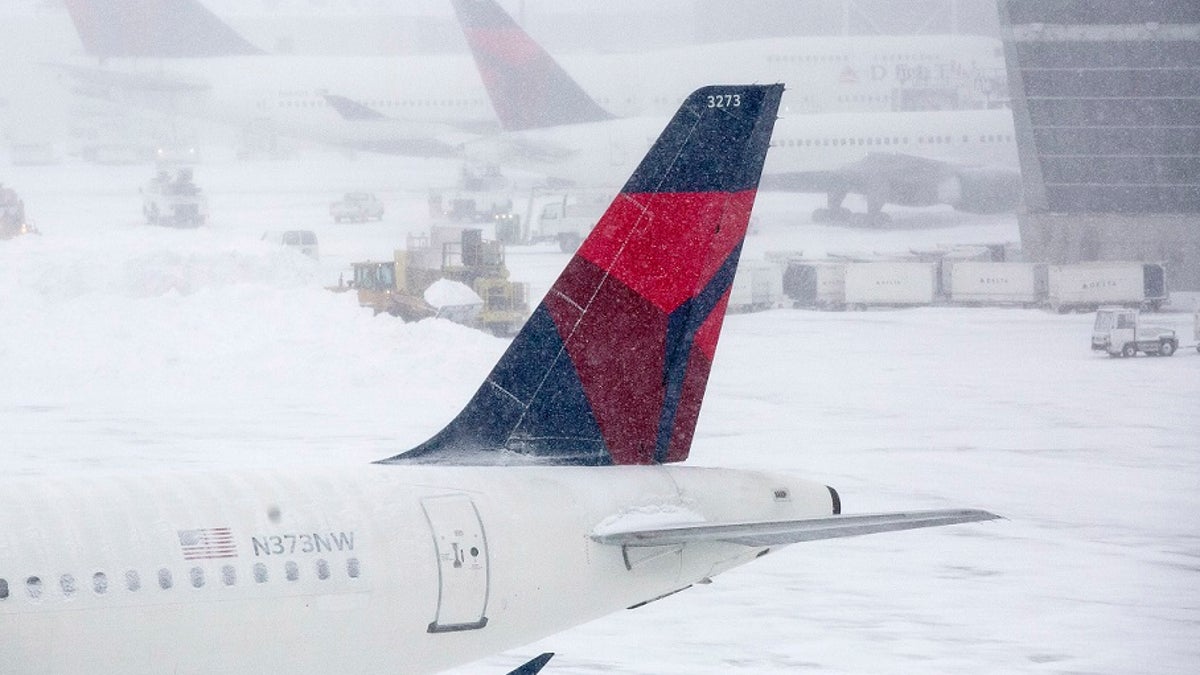
A Delta flight was reportedly delayed for 12 hours -- then cancelled -- due to inclement weather on Tuesday, and passengers are furious. (Reuters)
A Delta airliner loaded with passengers at Kansas City International Airport was delayed nearly 12 hours Tuesday because of a raging ice storm -- then the flight was canceled, according to local reports.
One passenger sat on the plane, bound for Los Angeles, from 6:30 a.m. to approximately 6 p.m., the Kansas City Star reported.
“It was a s--- show,” the woman, Ann Ngo, told the paper, adding that she was able to finally get on an outbound flight the next evening. Ngo said she received a $100 voucher from Delta for her trouble.
Another passenger tweeted that "the gross incompetence associated with flight #2195 defies all logic."
A Delta spokesperson said in a statement that "the significant amount of ice accumulation" on its airplanes "drove prolonged de-icing time." Airlines must be de-iced using a special fluid to fly safely.
But an airport official told the Star that Delta was the only airline that had significant delays due to the weather -- and noted that de-icing planes is the responsibility of airlines, not airport officials.
"The gross incompetence associated with flight #2195 defies all logic."
A passenger suggested on Twitter that the flight was eventually canceled because the flight crew exceeded its maximum working hours during the delay.
The incident occured despite a recently revived deal between American Airlines and Delta permitting the airlines to put passengers on each other's planes when travelers are stranded by disruptions such as winter storms and computer outages.
The Delta flight reportedly made several trips to and from the gate, and the airline allowed passengers to leave the plane periodically.
Because of an Obama-era regulation that prescribes fines for airlines that leave passengers stranded onboard planes, those occassional respites from the tarmac may have saved Delta a significant amount of money.
The Transportation Department has set a three-hour limit for ground delays involving domestic flights and four hours for international flights, subject to some limited exceptions.
Airlines that violate the rule can be fined $27,500 per passenger.








































